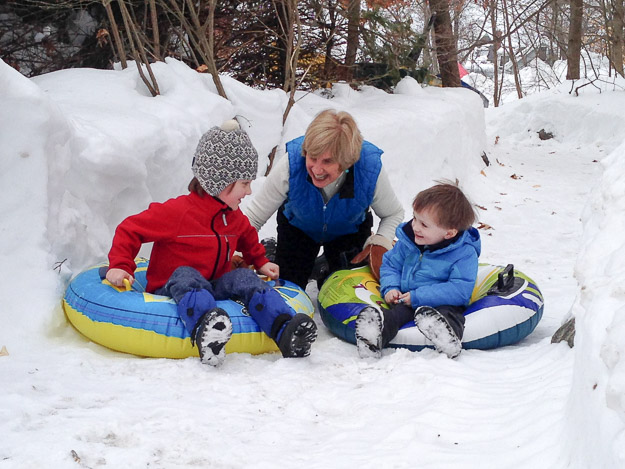[From my blog on Psychology Today]
Young children need to be taught language and social skills “outside the box”. What do I mean? Children who receive speech therapy at school are often seen in a “box”, that is, an office or cubicle – where they sit at a table and practice exercises. But in my experience children learn better in a play environment – outside, during recess, on the playground or during free play time in the classroom. What’s more, speech therapists need to be trained to become experts in teaching social skills, and should allowed and encouraged to treat children at recess and during choice time in the classroom. (given large school-based case loads, would they have time to do this?)
A child’s IEP goals should include and specify that at least some language facilitation be done outside of the classroom, when the child is with at least one peer. Adult guidance can help a child with a social language disability successfully play with a peer. The adult can help the children create a social goal for each activity, such as looking at each other, staying close, and making comments to each other as they play. The adult can also help with follow up at home – for example, using a smart phone to video the two practicing their skills. They can send it to the parents who can practice the techniques at home or on a nearby playground. Here are two boys working with me on social skills outside—out of the box.
I have observed many school personnel sit at a round table with a child and five peers and play a board game with a wait time for each child of five to seven minutes. The kids often become bored, and start acting out. Some of the social skills materials can be boring or do not give the child scripts that are appropriate.
Many school speech therapists have a large case load but despite a shortage of time, are obligated to meet the goals of a child’s IEP that requires social skills. Some students may not be matched carefully, and some children imitate negative behaviors from these experiences.
Graduate programs are beginning to recognize that there is a gap in training students to become clinicians for social language. I have trained and supervised several speech interns and l clinical fellows over the years, and it is clear that some don’t know how to teach or facilitate social skills or to teach children to play while others do this naturally. Teaching social skills to speech and language pathologists needs to become a part of the required curriculum during their training because it has a major impact on the functional use and generalization of language skills outside of the classroom.
I do know that children learn social skills best through social interactions with their peers as long as they have some adult support. Children can learn these skills best while playing.
Read more of my posts on Psychology Today.

